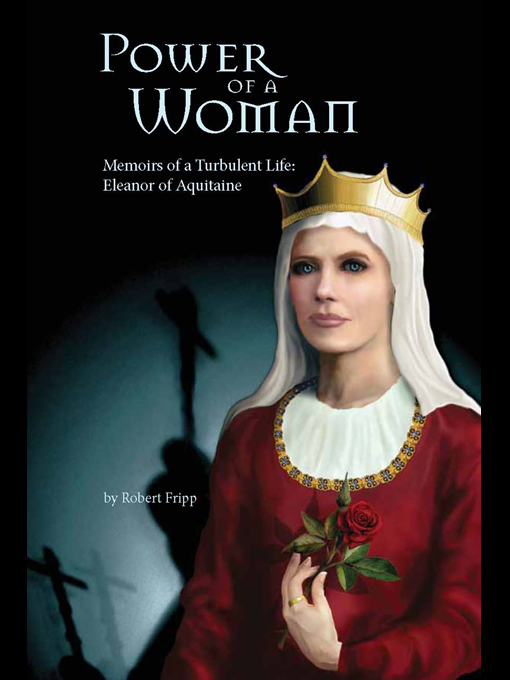The feminine spirit soars in Power of a Woman as Eleanor of Aquitaine, toughest of medieval women, relates her memoirs: of caring and loyalties, triumphs and trials; of her marriages to two warring kings, Louis VII of France, then Henry II of England. The churchmen who dictate policy at Louis' court spy on Eleanor. We share her relief when she leaves Louis and his "sniff-nosed priests" to marry Henry, becoming queen of England.
She regales her readers with intrigues, crusades and ruthless diplomacy while confessing her loves, her cares, her hopes for her children, and their fates. A patron of troubadours, Eleanor commissions poetry as propaganda. She counsels Henry during his years-long struggle against his former friend, Archbishop Thomas Becket. She doubts Becket's piety: "The man was a martyr to his own pig-headedness!" While Henry is warring with Becket he is whoring with "Fair Rosamond" Clifford, the mistress whom Eleanor dismisses: "Let him parade his whore!"
After thirty years as the consort of kings, she has had enough of men: "The only power I concede to the 'better' sex is that of brute strength; in which respect an ox is a mightier thing than a man! It is women to whom God gave the germ of fertility and the mind to thread the maze of politics." In midlife, she returns to her capital city, Poitiers, establishing her Court of Ladies "to empower women with the Grace" that she herself enjoyed as the femme fatale of her day... "Men," she declares, "have written much, muttered more and understand nothing of our Court of Ladies. What we conceived was a return to the birthright of women I knew in the south from my earliest years, as persons equal to men, not in might, but in nature, in virtue, in soul." She tells her readers: Women can improve their lot against the male hierarchies of Church and state! She fought these hard and long. Eleanor speaks intimately, emotionally of her "too many quarreling sons," including Richard the Lionheart and John, of Magna Carta fame. Henry, enraged when Eleanor supports their sons' rebellion, exiles his spirited wife to England.
Years later, Richard the Lionheart appoints his mother regent of England. She is nearly seventy when she exacts taxes to pay for King Richard's crusade; past it when her strength of character breaks a rebellion by English barons supporting Richard's younger brother, John. As for the treacherous king of France: "That oath- breaker, Philip of France, abandoned Richard in Palestine and returned to piss on the Truce of God!" Eleanor must extract another king's ransom (literally) from her barons and bishops to bring Richard home. And she still has a decade to live, outsmarting, outlasting her foes.
Eleanor of Aquitaine suffers many tragedies, but her sea of troubles seems to buoy her up. When her Angevin Empire begins to dissolve she risks "everything my life's work built to be possessed and ruled by men now dead." And yet Eleanor floats on troubles as if she were cork: "I account catastrophes as necessary losses from which I shall move on. I choose instead to celebrate my pasts, for they were legion and lively, and many still live." Nearing her end, Eleanor's "power of a woman," her Grace, is such that she plucks triumph from her defeats as well as her victories.

